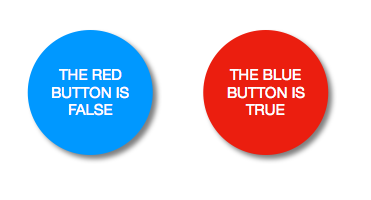
The Paradox of the Court, also known as the counter dilemma of Protagoras goes on and on in the world without a stop. A lot of important truths in life are contradictory. And, we get used to contradictions as a part, as we live our lives. The truth is, life is often illogical, paradoxical, and just blatantly strange. Protagoras’ paradox is a paradox originating in ancient Greece. It is said that the famous lawyer and scholar Protagoras took on a pupil, Euathlus for not paying his fees. The understanding was that the student Euathlus would pay fees to Protagoras for his instruction, after Euathlus wins his first court case. Protagoras was much in demand as a law teacher. After instruction, Euathlus decided to not enter the profession of law, and Protagoras decided to sue Euathlus for the amount owed.
Protagoras argued that if he won the case, he would be paid his money. If Euathlus won the case, Protagoras would still be paid according to the original contract, because Euathlus would have won his first case. On the other hand, Euathlus maintained that if he won, then by the court’s decision he would not have to pay Protagoras. If, on the other hand, Protagoras won, then Euathlus would still not have won a case and would therefore not be obliged to pay. The question is then, which of the two men do you think is right?
Protagoras’ paradox is about dilemmas and irony. Such paradoxes occur in real life situations. Projected figures of the death toll due to the Novel Coronavirus, right from Harvard to Imperial College, are based on complex calculations beyond the grasp of most of us. Equally mystifying is the downward or upward revisions by the same institutions. It is truly an infodemic which mean an excessive amount of information concerning a problem such that the solution is made more difficult within a pandemic. While the value of a human life can never be compared or quantified with economic cost, there is enough evidence to suggest a direct qualitative and quantitative relationship of economic wellbeing with life.
Leave aside health and economic issues; the virus has played havoc on our social fabric. In India, in a small village in Sitamarhi in Bihar, a 19-year old boy was lynched to death by people of his own village. What was his crime? He had reported to the police about his neighbours who had eventually returned from Delhi, braving all odds during the lockdown. The boy was afraid the migrants who returned would infect others, that the contagion would consume him and his family. A similar incident was reported days later from central UP with the only difference being that the victim was shot and not lynched. Strange things do happen in strange times. In a small town in the UP- Bihar border, a husband turned away his wife, who had returned from her ‘maika.’ This is because small town mohallas have declared themselves a ‘no entry’ area. In Amritsar, a Padma Awardee in his death with virus was denied cremation by all crematoria of the city that was his home for 82 yrs.
Look at this paradox; richest one percent of Indians own 53 percent of the country’s wealth, the richest 5 percent own 68 percent of the country’s wealth, while the top 10 percent have 77 percent. At the other end of the pyramid, the poorer halves of our countrymen jostle for four percent of the nation’s wealth. Income inequality in India may be at its highest level. This inequality ratio that has risen rapidly over the last three decades; in the 1990s there were no Indians on Forbes’ list of billionaires; today there are more than 100.
Think of this marketing paradox: marketers often say that nostalgia branding works incredibly well, evoking positive emotions from the recall of good experiences. Difference from “sameness” interferes with this brain-based response. But companies also operate under the assumption that sticking with tradition is a death sentence, and that organizations need to innovate for consumers to see them as productive and relevant…..as a Marketing Professor, I always find it difficult to explain.
Those who think they are smart always want to be at the top. They don’t take no for an answer. But two heads are better than one, and of course, there’s no ‘’I” in team. So are we supposed to be self-focused so we can reach the top rung of the ladder, or are we supposed to use group synergy to be more productive than we could be alone?
This is about social media: the more connected we get, the more inaccessible we feel. Despite being in more constant communication than ever, research finds an increase in loneliness and depression in the developed world over the past few decades.
The more choices available to you, the less satisfied you are with each one. This is the old “paradox of choice.” Research shows that when we are presented with more options, we become less satisfied with any particular one we choose. The theory is that when we have so many options, we have greater opportunities cost in selecting each particular one; therefore, we’re less happy with our decision.
The more you learn, the more you realize how little you know. This is one of the old Socrates adages. Every time you gain a greater understanding, it creates even more questions than it answers.
And this one paradox always boggles me the most; change is constant it occurs continuously. It is really profound, but are we ready for it always???













































